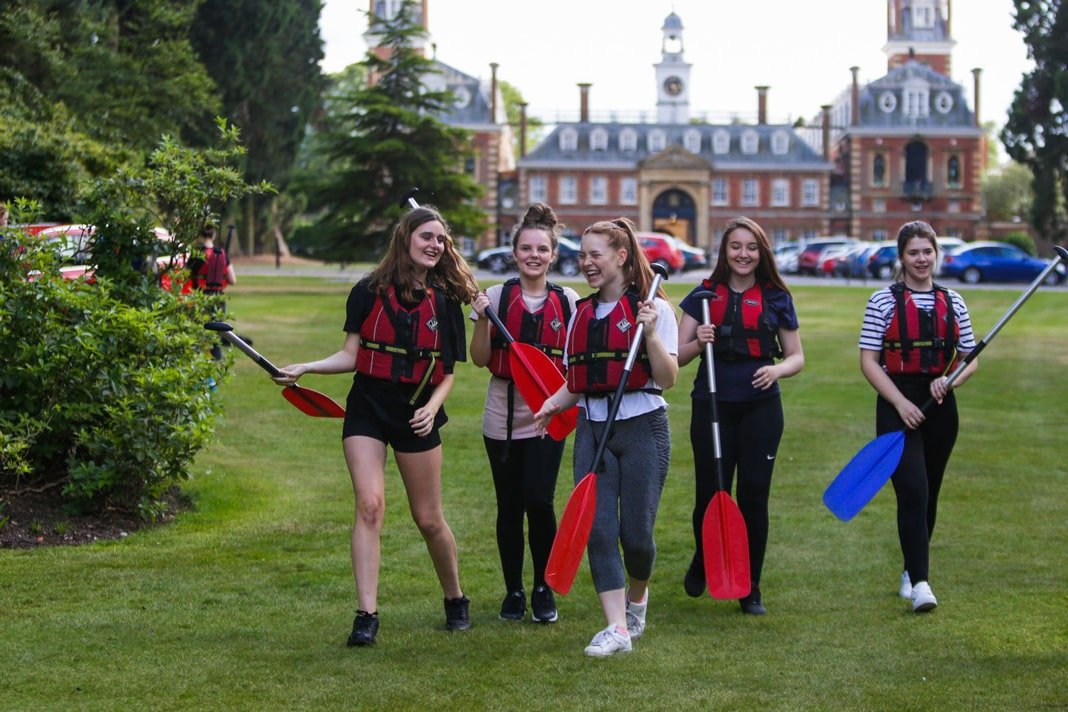The Master of Wellington College James Dahl discusses its history of pioneering education initiatives and current plans that continue its mission to help shape a better world
Wellington College has a unique history. Founded both as the living memorial to the 1st Duke of Wellington and as a charitable institution to educate the orphan sons of army officers, the College was granted a Royal Charter in 1853 and opened its doors to 76 boys in January 1859. The most obvious change since our foundation has been our move to co-education. Girls first arrived in the Sixth Form in 1975 and were first admitted at 13+ in 2006.
Over the past two decades, the College has also earned its reputation as one of the most pioneering and forward-thinking schools in the UK, being the first to embed the teaching of Wellbeing. Other examples of this pioneering approach include the adoption of Harkness teaching, the widespread use of technology in the classroom, embedding the IB Diploma as well as A levels in the Sixth Form (today 50% of Wellingtonians study each), and playing a key role in the educational debate through our ground-breaking Festival of Education every summer. Our international schools in China, Thailand and India also represent an exciting new chapter in the College’s history.

The boarding environment we offer here brings huge benefits. The residential environment allows pupils to develop bonds of friendship and their human skills (I hate the term ‘soft skills’) to an extent which is simply not possible in day schools. It also allows young people to immerse themselves fully in both their intellectual and co-curricular passions. At Wellington, there are activities going on from 8am until 10pm every single day. Our flexible model means that pupils can go home after lessons and activities on a Saturday afternoon and return on a Sunday evening, so families benefit from the opportunities of a full-on boarding experience, but also enjoy time together most weekends.
The College never stops evolving and looking to the future – one reason it is a privilege to lead here. When I became the College’s 15th Master in September 2019, putting the final piece in Wellington’s co-educational jigsaw was a priority. By converting an existing boys’ house into a girls’ community and by building an 18th co-educational sixth form house, the ratio between boys and girls will become 50/50 by September 2025. We are also significantly expanding our Prince Albert Foundation (PAF) scholarship scheme to widen access to children from backgrounds of low income or disadvantage. This means that by September 2025 we are on target to have 40 PAF scholars at the College.
“Our Wellbeing Centre will bring together every aspect of our provision in a single state-of-the-art and synergised space”
Our ethos is founded in our purpose statement – pioneering education to serve and help shape a better world. Academic excellence is central, as is the development of character through our co-curriculum, Global Citizenship programme, service and leadership opportunities. The mantra ‘anything is possible at Wellington’ is key to our approach.
Governors have recently given the green light for two exciting new strategic initiatives. The first is the creation of a holistic Wellbeing Centre bringing together every aspect of our provision in both physical and mental wellbeing, both proactive and reactive, into a single state-of-the-art and synergised space. Secondly, we intend to set up an educational research and innovation centre called ‘The Bridge’, which will bridge the gap between research and practice, between the state and independent sectors, between the UK and international schools, between primary, secondary and tertiary settings. Both projects are seriously exciting and proof of our continuing commitment to the mission of delivering education to shape a better world.
Wellington College wellingtoncollege.org.uk
Further reading: Hurst College on the importance of expanding minds
You may also like...






























